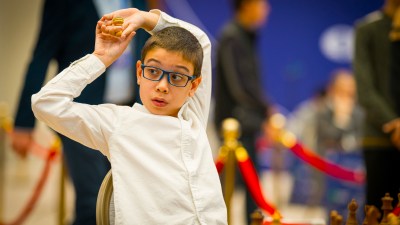8216;Conversion to Islam should not be abused in Malaysia8217;
Anyone who converted to Islam should have the legal right to revert to his or her former religion demanded a minority group.

A leader of a multi-religious body in Malaysia has demanded that the government act urgently to remedy legal loopholes so that citizens could freely profess their faith while preserving family harmony.
8220;Conversion to Islam should not be abused as a means to evade one8217;s legal obligations to one8217;s family. A person8217;s conversion to another religion should not cause pain and suffering for other members of the family,8221; said A. Vaithilingam, President of the Malaysian Consultative Council of Buddhism, Christianity, Hinduism, Sikhism and Taoism MCBCHST.
Vaithilingam in a statement said anyone who converted to Islam should have the legal right to revert to his or her former religion without any legal impediments.
He asked all state governments and the federal authorities to act urgently to remedy the loopholes in the law so that Malaysians could freely profess and practise their religions in peace, while preserving family harmony as far as possible, media reports said in Kuala Lumpur.
The leader of MCBCHST underlined that a person8217;s non-Muslim family should not be disinherited simply because of that person8217;s conversion to Islam. Instead, the person8217;s Muslim and non-Muslim dependents must share his estate equitably.
The organisation praised the observations of a Malaysian Chinese leader that those who converted to Islam through marriage should be allowed to revert back to their religion in case the marriage failed.
The Council said Malaysian Chinese Association President Ong Ka Ting8217;s remarks about Muslim converts in Parliament was a sentiment shared by all 8220;right thinking Malaysians from all religions.8221;
Malaysia8217;s 27 million population comprises 60 percent Malays who are all Muslims, 25 percent Chinese who are mostly Christians or Buddhists and 7.8 percent ethnic Indians, a majority of whom are Hindus.
Malaysian Chinese Association chief Ong told parliament on Wednesday that in case of one parent embracing Islam, the religion of the child who is a minor must be decided by both parents or remain status quo until the child reaches the age of 18.
He said in the last three years, Malaysia, a multi-religious, multi-ethnic country, had witnessed an unprecedented number of religious matters involving constitutional rights of non-Muslims. Such cases involved divorce, custody of children and inheritance.
In another observation, Ong had told parliament that Malaysia8217;s judiciary should be more multi-racial to reflect the ethnic composition of the country.
He said this would enable the perception that judges were not able to adjudicate fairly and impartially when faced with sensitive issues be corrected.
Currently, magistrates and Sessions Court judges are appointed by the Judicial and Legal Services Commission, media reports said.
- 01
- 02
- 03
- 04
- 05































